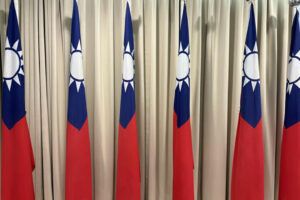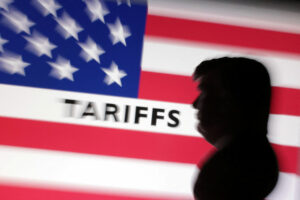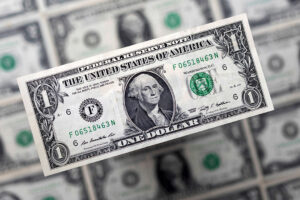By Cathy Rose A. Garcia, Editor-in-Chief and Adrian H. Halili, Reporter
TAIPEI — The Taiwanese government is seeking to strengthen cooperation with the Philippines including on maritime patrols amid China’s increasing use of gray-zone tactics in the region.
“We know that China and the Philippines also have some gray-zone conflicts regarding the islands in this area and that is also the same situation for Taiwan,” Mainland Council Affairs (MAC) Deputy Minister Yu-chung Shen told visiting foreign journalists on July 7.
“We think regarding this gray-zone tactics, Taiwan and the Philippines can work together on patrols and the issues on maritime law enforcement. These are where we can keep our cooperation,” he added.
China claims almost the entire South China Sea, overlapping claims by Taiwan, the Philippines, Brunei, Indonesia, Malaysia and Vietnam. China’s claims are based on a 1940s map that a United Nations-backed arbitration court in The Hague voided in 2016 for being illegal.
Ties between the Philippines and China, which considers Taiwan a renegade province, have worsened in recent years due to repeated encounters between their coast guard ships in the South China Sea over competing claims on the Spratly Islands and Scarborough Shoal, among other sea features.
“We will continue to strengthen cooperation with like-minded countries in the region on economic and other gray-zone tactics,” Mr. Shen said. “For the First Island Chain nations such as Japan, the Philippines, and Vietnam, we will have more opportunities to cooperate on the issues of mutual assistance.”
Mr. Shen said the number of activities by People’s Liberation Army (PLA) fighter jets and warships around Taiwan has been “intensifying.”
In 2024, it counted more than 5,000 PLA fighter jets and more than 3,000 instances of warship activity around Taiwan, he said. From January to June this year, it counted more than 3,000 instances of PLA fighter jet activity around Taiwan, with more than 2,000 crossing the median line of the Taiwan Strait.
“So if the trend continues, that will give us more than 6,000 counts of PLA fighter jets having activities surrounding Taiwan, and more than 4,000 of them crossing the median line of the Taiwan Strait,” Mr. Shen said.
Critics have cited China’s gray-zone tactics against Taiwan in recent years including cyberattacks, disinformation campaigns, trade restrictions and political interference.
A report by the National Security Bureau showed the average daily cyberattacks targeting Taiwan’s government network doubled to 2.4 million in 2024 from a year earlier. Most of these attacks were attributed to China’s cyber-force, the bureau said.
Mr. Shen also said Taiwan has recently noticed more disinformation circulating in Taiwan that is being coursed through “local collaborators.”
“We will continue to regulate and try to identify the local collaborators inside Taiwan and to make sure that we take control of that,” he added.
To combat foreign information manipulation and interference, Mr. Shen said Taiwan is also considering banning apps like TikTok, artificial intelligence model DeepSeek and social media platform RedNote.
These Chinese-owned apps have been banned on government devices since 2019 due to national security concerns over possible data collection by the Chinese government.
Mr. Shen said the influence of those apps in Taiwan might be indirect for now, but there are risks from the leak of personal information of certain government and military personnel.
“In terms of cognitive warfare, a lot of Taiwanese teens do not know much about cross-strait relations. They might have some bias if they use TikTok too much,” he added.
Mr. Shen said the government is also working with civil society to strengthen media literacy to ensure they don’t fall for disinformation.
He said Taiwan would continue to uphold the Four Pillars of Peace action plan proposed by President Ching-te Lai through “strengthened national defense, improved economic security, stable and principled cross-strait leadership and value-based diplomacy.”
“Taiwan is the pivot connecting Northeast Asia as well as Southeast Asia,” Mr. Shen said. “Facing this military expansionism from Mainland China, Taiwan plays such an important role to connect countries such as Japan, South Korea, the Philippines, Indonesia, as well as Malaysia.”
Last week, Taiwan launched its biggest ever military drills to assess the island’s combat readiness against a full-scale invasion.
The Philippines maintains a “One-China Policy,” but has ties with Taiwan, with the Manila Economic and Cultural Office serving as a de facto embassy.
The Philippine government has relaxed restrictions on travel to Taiwan for economic, trade and investment purposes by government officials, limiting the ban to the President, Vice-President, Foreign Affairs and Defense secretaries. It has also given visa-free entry to Taiwan passport holders.
‘MUTUAL CONCERN’The Department of Foreign Affairs (DFA) on Sunday urged China’s Ministry of Education to correct what it described as “inaccuracies” in an advisory that warned Chinese nationals against studying in the Philippines due to safety concerns.
“The Department has conveyed its concerns regarding the inaccuracies in the advisory issued by the Chinese Ministry of Education through diplomatic channels,” the agency said in a statement. “It is hoped that the Chinese side will undertake the necessary corrections.”
The advisory, published by China’s Ministry of Education on July 18, warned Chinese students to reassess the risks of studying in the Philippines.
It described the country’s security environment as “unstable” and cited a reported increase in crimes targeting Chinese nationals. The advisory also claimed that Chinese citizens and businesses had faced frequent harassment and inspections from local law enforcement.
Chinese Foreign Ministry spokesperson Lin Jian echoed these concerns in a press conference on the same day, citing “rising safety risks” in the Philippines.
“We once again remind Chinese students studying in the Philippines to make a careful assessment of the safety risks,” Mr. Lin said. “At the same time, we urge the Philippines to take concrete actions to protect the safety, dignity and lawful rights and interests of Chinese students studying in the Philippines.”
The DFA rejected this portrayal, saying it mischaracterized the situation in the country. It added that Philippine law enforcement authorities actively address all crimes involving foreign nationals, including Chinese citizens, as well as those committed by foreigners against their compatriots.
“The Philippine government has been engaging with foreign embassies, including the Chinese Embassy, regarding these cases in good faith,” the DFA said.
The agency also reiterated Manila’s commitment to constructive engagement with Beijing. “The Philippines remains committed to constructively discussing matters of mutual concern with China.”
Tensions between the two countries have escalated in recent years due to their dispute in the South China Sea. The Philippines has become more assertive in defending its sovereign rights within its exclusive economic zone.
In 2016, a United Nations-backed tribunal in The Hague voided China’s sweeping claims over more than 80% of the South China Sea, through which $3 trillion in global trade passes through annually, for being illegal.






